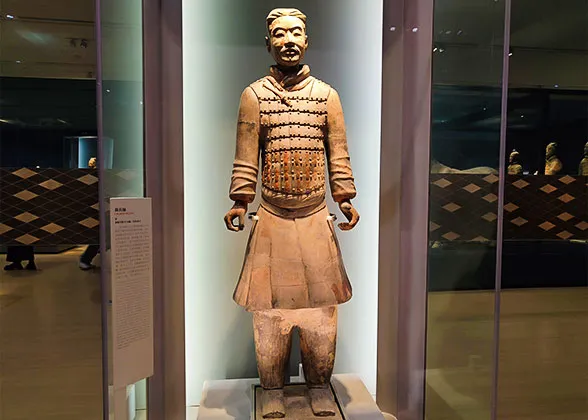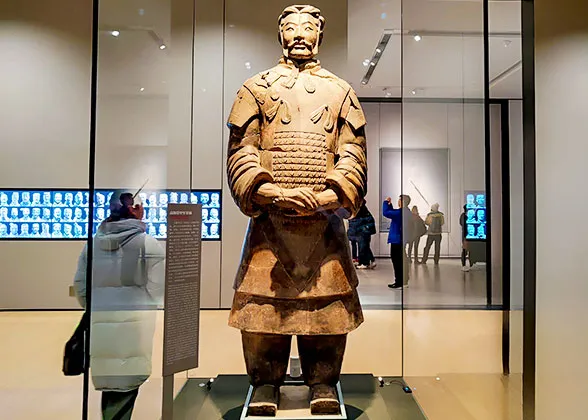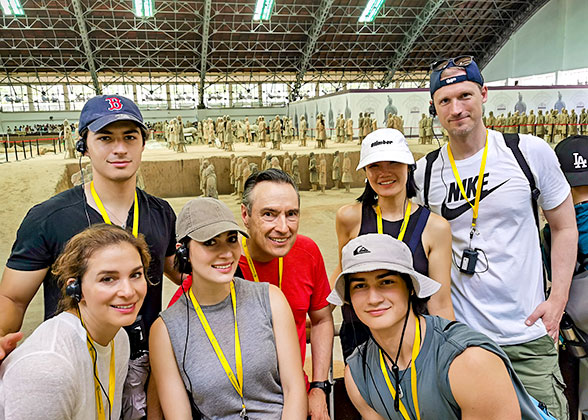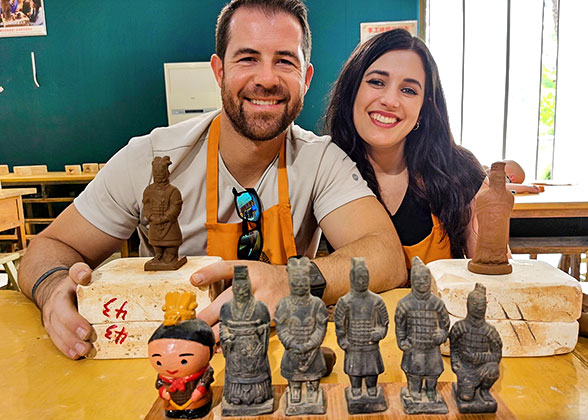How tall are the Terracotta Warriors?
These figures were not randomly crafted; they were modeled after real soldiers from the Qin Dynasty (221 - 207 BC). Back then, the average height of the general population was typically under 1.6 meters (5.2 feet), while individuals exceeding 1.8 meters (5.9 feet) were deemed exceptionally tall, even regarded as "giants." This means that that the majority of soldiers in the Qin army stood significantly taller than the average person.
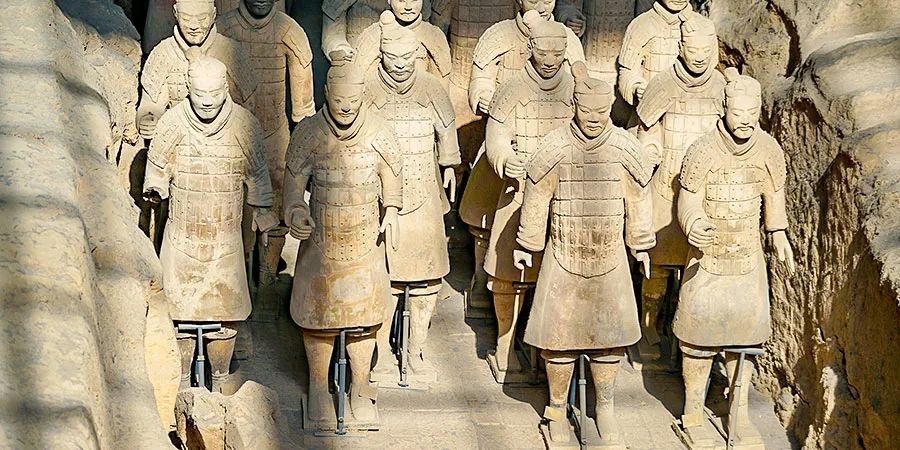 |
| Life-size Infantry Warriors in Pit 1 |
Heights of Different Terracotta Warriors
The infantry warrior figures, which form the main body of the army and are the most numerous in the pits, have an average height of about 1.7 to 1.8 meters (5.6 to 5.9 feet). Their taller stature likely reflects their role as the primary combat force, requiring physical strength for close-quarters fighting. Cavalry warrior figures are slightly shorter, averaging around 1.65 meters (5.41 feet). This may be because ancient cavalry needed greater mobility and flexibility in battle. Charioteers, on the other hand, stand about 1.7 meters (5.6 feet) tall, maintaining proportional harmony with the large war chariots. The high-ranking officer figures are the tallest of all, with some exceeding about 2 meters (6.6 feet), emphasizing the grandeur and power of the Qin military.
|
|
Why are the Terracotta Warriors so tall?
1. They Were Modeled After an Elite Army
The Terracotta Warriors were based on the elite troops of the Qin Dynasty. Research suggests they represent the royal guards responsible for protecting the imperial palace. These soldiers were rigorously selected, and since the Qin Dynasty was an era of cold weapons, close-combat warfare required strong and tall soldiers.
2. Shoes and Hairstyles Added to Their Height
Most of the terracotta figures wear thick-soled boots. For example, the kneeling archer unearthed from Pit 2 wears square-toed upturned boots with soles as thick as modern high heels. In addition, their topknots and headwear, such as the pheasant-feather caps of high-ranking officers and the long double-plate caps of middle-ranking and lower-ranking officers, also contributed to their visual height.
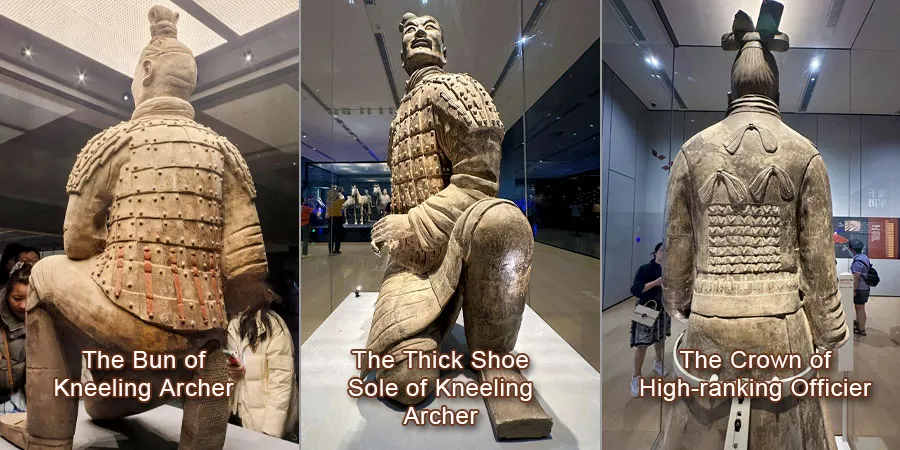 |
You may like: Hairstyle and Headgear of Terracotta Warriors
3. Artistic Exaggeration to Highlight Military Power
Artistic enhancement played a role as well. Generally, sculptures appear shorter than real-life people when viewed from a distance, so the figures were made taller to achieve a lifelike effect. Moreover, as burial objects of China's first emperor, Qin Shi Huang’s mausoleum, the Terracotta Warriors were likely stylized to emphasize the strength and grandeur of the Qin army.
Were the ancient Qin people taller than people today?
No, ancient Qin people were definitely not taller than people today. From over 3,000 excavated Qin Dynasty tombs, the average height of unearthed skeletons is approximately 1.7 meters (5.6 feet). It might even be slightly higher than the actual average at the time, as those buried in tombs and preserved till today likely had better social status and nutrition, which contributed to their relatively greater height. Furthermore, historical records indicate that in Qin law, adulthood was defined by height: men were considered adults when they reached 1.5 meters (4.9 feet), and women at 1.4 meters (4.6 feet), suggesting that ordinary people at that time were generally shorter in stature. Due to improvements in living conditions, nutrition, and lifestyle, people today are generally taller than their ancient counterparts.![]() Further Reading:
Further Reading:![]() Types of Terracotta Statues
Types of Terracotta Statues![]() Terracotta Infantry Warriors
Terracotta Infantry Warriors![]() Terracotta Warriors Pit 1
Terracotta Warriors Pit 1![]() Terracotta Warriors Pit 3
Terracotta Warriors Pit 3![]() What Are the Terracotta Warriors Wearing?
What Are the Terracotta Warriors Wearing?![]() Bareheaded! Why didn’t the Terracotta Warriors wear helmets?
Bareheaded! Why didn’t the Terracotta Warriors wear helmets?![]() How to Visit Terracotta Army - A Perfect One-Day Tour Plan
How to Visit Terracotta Army - A Perfect One-Day Tour Plan
